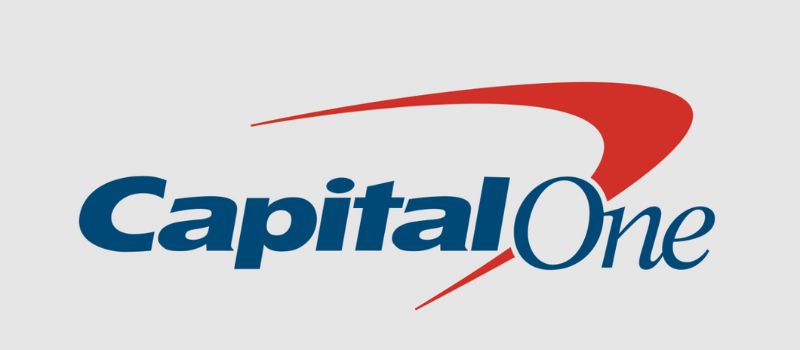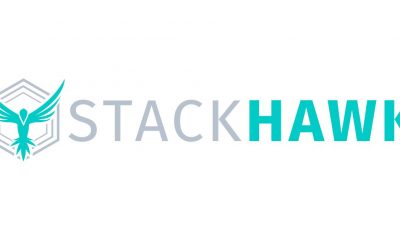Business
Advice From Millennial Entrepreneurs
Published
6 years agoon
By
Jie Kuang
Millennials are underrated when it comes to work ethic. As the biggest age group in the country at 80 million strong, entrepreneurs sprout from all over, creating jobs for a variety of industries. Success comes in many forms, and we at Owner’s Magazine had the opportunity to talk to a few successful entrepreneurs about culture, motivations, and how to achieve your goals. Many of these entrepreneurs are founders and CEO’s of their own businesses, and they are here to give some advice on how to grow.
Greg Star, Founding Partner of Carvertise
“Why finding a mentor is the worst advice I ever received. You may be confused by this title. After all, a mentor is crucial for personal development. They can provide hard earned wisdom that only comes from experience facing similar challenges that you are up against. Additionally, a mentor can open up a network of contacts that you would not meet otherwise. So why would finding a mentor be considered bad advice? Isn’t this a no brainer? The answer is no- and here’s why.
Finding a single mentor limits your thinking. You should be trying to find multiple mentors. Here are three important benefits you get from surrounding yourself with a team of mentors as compared to one.
1. Different viewpoints– Having several mentors with different specialties to bounce problems off of will give you broader insight on the problems you are facing. Your one mentor may have a biased that can only be seen if your getting multiple points of view.
2. Larger network– A mentor can open up a lot of doors to a lot of key introductions for you from a personal and professional standpoint. Thus, the more mentors you have, the larger your network becomes.
3. It teaches you how to ask for help– This is probably the best lesson for finding multiple mentors. The act of constantly reaching out to different people asking help is an incredibly important skill. It teaches you to put your ego aside, which is incredibly important in developing personally and professionally. I personally reach out for help 3-4x a month to people who I think I can learn from, and the benefits have been exponential.
Bringing it together:
Next time someone tells you to find a mentor, stop them, and let them know why they are wrong!”
Andrew Nakkache, Co-founder & CEO of Habitat LLC
“7 core attributes or traits that I think are important for entrepreneurs (at least for me):
Share Ideas – I’m big on sharing a raw idea with everyone. Ideas are typically worthless, and the only way they get better is through talking to enough people (and customers). 9/10 ideas I have are terrible.
Delusional Optimism – You need to have a deep-seeded belief that you and your team are exceptional, and you are the ones that are going to fix the problem you’re solving.
Everlasting Paranoia – Simultaneously, you have to believe that what your building is worthless
Shameless Persistence – Again, tell everyone your idea and ask everyone who you think can help..for help. Most people like to help entrepreneurs, those relationships can turn into mentors.
Impulse Control – You need to have the ability to resist temptation.
Level Headed – This ties into Impulse Control, you’re going to have a lot of internal battles. It’s important to keep a level head, and your team needs to see that.
High Integrity – Always be thankful and courteous to everyone you meet. You never know how someone may be helpful down the road.”
David Feinman, Co-founder & CEO of Viral Ideas
“For new entrepreneurs, it is important to just get started, to do something that you can take to market. Be it a product, a consulting concept, or something small, that you are able to take to a few customers that are willing to pay you something, for your idea or for your concept so that you can test, learn, and grow from that initial starting base, and really build on top of that.”
Benjamin Fuller, Associate of Montgomery McCracken’s Business Department
“While every situation is different, I often recommend that the partners in start-ups have honest and frank discussions their goals. I find that they rarely have accounted for disagreement and difficult circumstances that are likely to arise in any business. It is always easier to have a discussion about these issues up front.
With respect to growing companies, I counsel them on how investment may dilute their equity. For founders of any company it is important to understand what they are giving up in order to gain investment. The bottom line is it’s important to include your lawyer in these types of conversations early and often. We often act as the facilitators of these discussions and can provide specific insight sometimes based on “war stories” – both good and bad – from past representations.”
Stephen Blackwell, Chief Strategy Officer of the Billboard-Hollywood Reporter Media Group
“The Great Recession created a lot of uncertainty for my generation and how it viewed itself and its prospects. The status quo didn’t appear sustainable at the time and it forced a lot of us to think outside the box – and ultimately create jobs during that time. To me, success has been about educating yourself at length about the industry you’re entering and then taking the extra time to get creative. Find that niche your industry is looking for. It’s probably hiding in plain sight.”
Tony Cho, President of Metro 1 Properties

Erica Dias, Co-Owner of The B Firm
“Never give up! Dreaming isn’t going to get you anywhere. DOING will! You’ve got this! Faith It Until You Make It!”
Ryan Shear, Principal of Property Markets Group
“I’ve found that so much of what dictates success in real estate development as a profession and an industry ultimately boils down to effective management, whether it’s managing time, resources, personnel, etc. From the beginning, I recognized an opportunity to do things at PMG differently from the typical development shop. We have a great blend of really experienced industry veterans working hand-in-hand with ambitious young professionals that has left us with a very atypical culture relative to the other companies in our field. We have fun together and support one another, but we are also constantly pushing. When it comes to incentivizing employees based on project performance, I think we are more aggressive than just about any other developer of our size and that gets the team to reach for that higher gear. I am very demanding of my team, but they have become even more demanding of themselves and that is what makes me most proud.”
Karen Elmir, CEO of The Elmir Group
“To maximize sales, one must be creative and think outside the box. Push beyond ordinary marketing tools by investing in your listing and always look for new channels of communication and sales. Remember, it takes money to make money. Additionally, professionalism and dedication are key. Make sure to consistently be knowledgeable about your product, as well as the state of the market and its trends.”
Ali Grant, Founder of Be Social
“As your business expands, you will soon understand the need to scale efficiently. It can be difficult giving ownership to others, but putting trust in your team allows you to conquer, grow, and scale.”
Elizabeth Convery, Founder of Very Real Estate
“I have been fortunate to build my entire book of business at VERY Real Estate on word-of-mouth referrals. It is my belief if you do right by one person, and put their needs above your own, treating them with respect, dignity, and acting in a thoughtful way on their behalf, that you leave a lasting and memorable impression. Naturally, when people have a positive experience, they tell their friends and your business grows like a tree. I strive to always have people smile when they hear my name. Making someone feel special is the key to building trusting, lasting relationships and having a reputation that leaves people feeling great.”
Zubin Teherani, Co-Founder of LeagueSide
“Sell your idea before you sell your product. Youth sports sponsorships have unique advantages over other forms of marketing. They provide a captivated audience for hours every weekend, guarantees digital and in-person impressions to the same group of families, and supports the families you’re marketing to by subsidizing their costs. We always, always, always, start by selling the merits of sponsoring youth sports organizations before we get into how it works. Selling the big picture helped us close big clients and investors in our early days before we ever built a product.
“Fake it till ya make it” – When we started LeagueSide, we focused on selling before we ever built a product. We pitched clients, youth sports leagues, and investors and got yeses before we committed to LeagueSide full-time. This validated that this was a business worth pursuing, saved us months of time, and gave us perfect clarity of what we needed to do next.”
Jenny Cipoletti, Founder of Margo & Me
“The Shift: I started reaching out to stylists to work with them on weekends. I worked PR during the week and started styling on the weekends with whoever needed an assistant at the time. From there, I started to realize I really enjoyed the styling more. I woke up at 25 and I had a grocery list of all of these amazing things: my health, my boyfriend, and my puppy, but I just wasn’t happy. I didn’t know what was wrong with me. I was alive but I wasn’t living. I was just going through the motions.
That Quit Moment: I said to myself, if I wake up at 30 years old and I’m still doing this, it’s not going to be pretty, so I left my PR job and went back to school. I did the nine month program at FIDM for fashion design, and it was incredible. For years and years, I hadn’t learned anything tangible applicable or creative — that changed overnight. I’d totally forgotten what it felt like to be a student again, totally immersed in a creative culture and constantly inspired by my teachers, my peers, and my work. I was thrown into a design program where you learned how to sketch, sew, drape, and create patterns. It was like this bubble just burst inside of me. I suddenly realized that this was what I’d been missing all along.
Start, Just Start: In addition to going back to school, I launched Margo and Me as a way to showcase what I was designing (Margo is my french bulldog). It started out as just a showcase for the dresses I was designing, but then I started posting outfits and styling tips as well. My husband is a director and was the one who originally inspired the idea because he was testing his new camera lens so I asked him to take a picture of me wearing one of my outfits. There were a few trendsetters out there, but this was before the huge blogging boom. There weren’t really many people doing it at the time. It was a whole new world.”
Kathleen McCabe, Founder of Syreni
“In the early stages of starting a company the best way to stay motivated is hold yourself accountable by telling as many people as possible about what you are doing. This will help you gain confidence and allow you to practice your natural sales pitch while building your future network. Get a web presence early and publish your anticipated launch date. The excitement you see from your early followers will motivate you to keep going and not give up.”
Hayk Tadevosyan, Insurance Agent at State Farm
“I always go back and use numbers to make things simple to understand as I strongly understand that numbers don’t lie. A powerful statistic and a very familiar one to business owners is “9 out of 10 businesses don’t make it past year One”, well what happens after year one?
Another interesting statistic, half the business owners that make it past year one don’t see year three and half of who makes it past year three don’t see year five…. Why is that?
During the starting phase of a business if you are part of the 9 out of 10 that doesn’t make it, it’s due to the fault of the person in charge, the business owner. You didn’t work hard enough, weren’t committed and were not putting in the hours. The only “silver bullet” in business success that I’m aware of is good old fashion Hard Work. SAME can be said by every successful entrepreneur I know.
The problem with year 3 is our business outgrown us in volume. As an individual there are only so many meeting we can attend, so many calls we can make, so many things we can manage. If we don’t duplicate ourselves, and in many cases duplicating ourselves several times, we will not keep up with the growth. When a demand exceeds the business structure, the business falls apart, which is why it’s crucial to start training and developing a team right away, and the right people take a while to develop. If you ask yourself the question of, “How long it took us to learn a skill and perfect it?” If the answer is years, then why do we get frustrated with our managers if they don’t get it right the first time and fire them?! We have to be patient and spend a lot of our time coaching, although sometimes we feel that time is better spend closing more deals. That’s a huge misconception, training and developing a team is the highest ROI time we can spend in a business.
Usually by year 5, the business owner is no longer working for money, but more for balance in life. At this point, we have to realize we don’t need a job and the business is not built to create a job for the business owner, it’s built to create jobs for others. If by year 5 the business owner doesn’t have a manager that manages his team and a team that manages the customers, there is a high chance of the business owners to get negative with the business, which takes away creativity, and with lack of creativity, there is no passion, and without having passion, business dies, either right away or slowly till it becomes more expensive to maintain the business than to just close doors.
There are a lot of moving parts to making a business work, but if I were to give anyone advice on what to focus on is this time schedule.
Year 1 – Be the hardest worker with longest hours. Become what you are looking to recreate as far as future employees in the business.
Year 2-3 – Since you are a machine, look to duplicate yourself. We always attract what we are, not who we want. So, if you are a hard and smart worker you will find a good team, if you don’t, then you need to ask yourself if you are leading by example.
Year 3-5 – One of your team members will shine more than the rest, put them in charge and train them on how to train others. Train the team to answer to the manager, so you only answer to your manager. It’s much easier long term to answer to few sharp leaders within your organization than thousands of clients. At this point, the machine is running, you have lots of time to spend on other business ventures, hobbies, family etc.
Your team is making lots of money and you have created good jobs in the community, and the business doesn’t stop growing as you are not a one man show.
Jie writes about influencers and startups in various industries. She is a designer turned techie, and when she is not writing, you can find her in her workshop working on her next big project.

You may like

Surprisingly, MLMs have become one of the most lucrative scams in recent years. But to sum it all up, its structure is only beneficial for those at the top, as they are the ones making all the money. Meanwhile, the new recruits are at the bottom, waiting for scraps.
Although various efforts have been underway to expose these pyramid schemes, many people still fall for them. It seems that the trend has never really died down, as we often see a new trend of scrappy moms and fresh-outta-college girls going ga-ga over these weird products. One of the more controversial is Elomir’s Axis Klarity.
Before this was launched, many distributors posted videos and images of themselves with photoshopped Post-its on their tongues. And of course, they were passing it off as a real product. Soon enough, the hashtag #Changetheconversation was plastered all over social media.
So, what could have gone wrong? Let’s go over the story of Axis Klarity and its parent company, Elomir.
About Axis Klarity and Elomir

Axis Klarity is a product created by Elomir, making a buzz in 2022. It still exists today, but seems to be operating under the radar. That said, let’s get to know it better.
If you’re familiar with those Listerine strips that dissolve on your tongue, then you’ll find this product to be similar. Only, instead of making your breath smell minty fresh, Elomir claims that it’ll improve your mood, calm your mind, and increase your cognitive abilities. How does it do this, exactly? Who the f*ck knows? Their website doesn’t explain much.
It does offer a few testimonials, mostly from women who happen to be distributors. There is one testimonial from a 13-year-old girl, claiming that Axis Klarity had helped her in school.
There’s only one problem with that: on the bottom of their website, in tiny print, Elomir states that their flagship product is not intended for those under 18.
Strange. But I’m sure it’s nothing, right?
Red Flags… Red Flags Everywhere!

Now, here’s the deal with Axis Klarity; the ingredients are alarming.
Before Axis Kalrity’s launch date, people searched their website for an ingredient list. Here’s what’s in these “cure-all” yellow strips:
- Curcumin Conjugate
- NAC Conjugate
- Thiamine Conjugate
First off, there’s really nothing here that would cause a change in mood, clarity, or any other benefits listed by their distributors. But what’s even shadier is the ingredient “NAC Conjugate.” This is an antioxidant that should be inaccessible to the general public.
So how does Axis Kalrity, an unregulated supplement, include this ingredient? It seems that the FDA is pretty lax about NAC Conjugate, despite declaring that it is not a supplement. Unless a company is promoting their NAC Conjugate as a cure-all, they don’t have to worry about the FDA busting down their door.
Still, I personally wouldn’t take prescription drugs from an unregulated source (unless I’m trying to party).
Okay, so we now know the product is crap. But what about their business practices?
For the longest time, Axis Klarity was in this “pre-enrollment phase”. It’s basically like preordering a game on Origin, but surprisingly shadier. Because instead of preordering products, people were signing up as future sellers. Before making any actual sales, Elomir was already making millions off recruitments alone.
But that’s not all. When Elomir finally launched their knock-off dental strips, it was a MASSIVE flop. Hundreds of orders went unfulfilled, as the number of products they had in stock couldn’t cover the number of people buying them. Still, Elomir took the money from everyone who ordered, offering no refunds.
The company later claimed that this ordeal was due to machinery issues. But anyone with a brain could tell that they were simply unprepared.
Elomir continues to push forward, promoting Axis Klarity with flaky testimonials while their distributors and customers lack compensation for their orders.
Conclusion

It’s an MLM, through and through – ‘nuff said. If you’re thinking about buying Axis Klarity or becoming a seller, just… don’t. I recommend saving your time and money by purchasing some of those Listerine strips. You’ll actually get what you pay for.
Featured image from Elomir

How can you recession-proof your business?
This is a common question among business owners who are concerned about how well they will fare in an unpredictable economy.
Whether or not we’re officially in a recession, many companies are feeling the pressure—rising costs, shifting consumer habits, and ongoing market uncertainty. While no business is completely immune to downturns, there are practical strategies you can adopt to strengthen your resilience.
But what is a recession-proof company?
A recession-proof company is a business that can maintain stable revenue and demand even during economic downturns. These ventures typically offer products or services that consumers continue to need regardless of financial conditions.
In this guide, we’ll explore key ways to make your business more recession-proof and help you navigate today’s challenges with confidence.
Are We in a Recession?

The term “recession” often sparks panic, but its technical definition is more specific. A recession typically refers to two consecutive quarters of negative gross domestic product (GDP) growth.
As of 2025, many economies have shown signs of slowing down, like higher inflation, cautious consumer spending, and volatile markets. However, most experts agree we are not currently in a formal recession.
Key indicators, such as GDP growth, employment rates, and consumer demand, remain relatively stable in the U.S. and many parts of the world. Still, uncertainty looms due to persistent global conflicts, supply chain disruptions, and high borrowing costs.
Even if we’re not in a recession by definition, businesses are feeling the squeeze. That’s why preparing now and building a recession-proof business is crucial to staying strong through future economic shifts.
Will There Be a Recession?
Predicting a recession is tricky, and even seasoned economists debate its timing. While the economy may not be in a technical recession today, many experts warn that a downturn could still happen in the near future. High inflation, fluctuating interest rates, and global instability keep businesses on edge.
That’s why building a recession-proof business now is a smart move. Some industries can weather economic storms better than others. What business does well in a recession, and what sells best in a recession? If we look back at history, the ventures that thrived in the 2008 recession included:
- Discount retailers
- Repair services
- Healthcare
- Essential goods providers
These businesses focused on solving everyday problems and offering cost-effective solutions, something customers prioritize when money is tight.
On the flip side, the worst businesses to start during a recession are often those that rely on:
- Luxury spending
- Large capital investments
- Non-essential services (high-end travel, event planning, niche hobby stores, etc.)
These ventures typically struggle when consumers cut back on discretionary spending.
Even if the next recession doesn’t arrive tomorrow, building flexibility and resilience today will help you prepare for whatever comes next.
5 Ways to Recession-Proof Your Business
If you’re a business owner concerned about the economy, these 5 tips can help.
1. Find Low-Cost Solutions
Survive a recession by saving money. Brilliant, right? But this isn’t just about cutting temporary costs to weather the storm. To truly recession proof your business, you need to set up for the future.
Some businesses choose layoffs and department closures when times are tough, but this shouldn’t be your first resort. For starters, think about scaling back your operating costs. Consider migrating to cloud storage, or finding cheaper software alternatives.
For example, many businesses rely on freelancers to supplement their creative team, which can start to add up when you need a lot of designs.

You might find that you save money by switching to a subscription-based graphic design service like Penji. Check out our review to see why we recommend it. You can also sign up with our special 35% off promo code — PREP35.
2. Put People First
In a recession, you may have to scale down your business operations, and that can mean letting people go. But if you intend to survive the recession, mass layoffs may do you more harm than good.

A business is made up of people, and each worker plays a role in developing your brand’s unique personality. Layoffs can sour long-term relationships, but they can also change who your company is on a fundamental level.
In a recession, some downsizing might be inevitable. But to recession proof your business, aim for transparency. Talk to employees about your difficult decisions, let them know where you’re cutting costs and what prospects may look like down the road.
3. Rethink Your Architecture
Every application has an architecture. If you produce tech, you can recession-proof your business by rethinking how you deliver it.
For example, you may consider a microservices architecture, which is sometimes less expensive than a singular (“monolithic”) setup. This considers each element of your service as its own mini-service.
For instance, an ecommerce site might use different services for accessing a user’s account, their shopping cart, and processing their payment. The user still sees one website, but under the hood, they’re accessing different services.
4. Demonstrate Your Value
Chances are, you’ve already given a lot of thought to what, exactly, your business offers. It should be at the core of all your marketing materials, your whole brand strategy.

But to recession-proof your business, you’ll need to double down. It’s not just, “What can we do for you?” It’s, “Why do you need us?”
Some of the best ways to demonstrate your business’ value include:
- Money saved
- Life improved
- Everyday problems solved
- What sets you apart from competitors
5. Be Flexible
On the one hand, you want to hold onto your business fundamentals to survive a recession. Your people, your values, your product. But when something needs to change, you can’t afford to be too precious about your current processes.

Be willing to make changes, but make informed ones. Test out new messaging, new products, new pricing models. If your ads are losing ROI, it might just be a sign of the times, but it’s worth looking into different strategies that could give you a boost.
You might think that in order to recession-proof your business, you need to avoid showing signs of weakness. The fact is, the most stubborn businesses are often the first to go.
Markets change a lot during a recession. When you come out the other side, you want to be ready to meet whatever new challenges come your way.
The Lowdown
Learning how to recession-proof your business isn’t about avoiding risk but creating stability in an unstable economy.
While you can’t control the economy, you can control how you prepare. Focus on cutting unnecessary costs without sacrificing your team, demonstrate clear value to your customers, and stay flexible with your strategies.
Businesses that survived the 2008 recession didn’t just hold on; they evolved. The best way forward? Start building resilience now so your business can thrive, no matter what the market throws your way.

McKinsey & Company reveals that 73 percent of bank transactions worldwide now take place online, such as in digital banks and payment systems. The increasing demand of customers for more flexible banking options is attributed to the rise in online banking channels. People prefer online banks because they offer simple tools and resources to manage their money. With this trend, online banking is here to stay.
Best Online Banks: A Quick Guide

Image Source: Tima Miroshnichenko from Pexels
An online bank should cater to your financial needs like any traditional alternative. Here are a few factors to consider when choosing online banks:
Annual Percentage Yield (APY)
The annual average yield offered under each account will tell you how much interest your money will earn. When comparing online banks, consider one that offers competitive rates across all of its deposit accounts.
Products and Services
Some online banks offer a complete package of banking products, including checking, savings, certificates of deposit (CDs), and money market accounts. They also offer loans and credit cards. So, look at the products and services offered by online banks before making a decision. You may also combine the services of an online bank with a traditional brick-and-mortar bank.
Account Access
Typically, online banks offer 24/7 access to your account through their website or app. However, you should also consider how the bank handles deposits and withdrawals. It is crucial to know the restrictions, if any, on transfers, the limitations on withdrawals, and whether the bank accepts free cash deposits.
ATM Network
An ATM network is essential if you frequently withdraw or deposit cash. An extensive ATM network will help you avoid transaction fees. If the bank is not associated with a large ATM network, you should look for one that will reimburse out-of-network ATM fees.
Digital Tools
The best online banks offer innovative digital tools to help you accomplish financial goals. For example, Ally will help you organize your savings goals with savings buckets and analyze your spending habits to safely transfer available funds from your checking to your savings account.
Fees
You should avoid any bank, online or otherwise, that charges monthly fees or has extensive requirements to avoid them. Many online banks offer no-fee deposit accounts, require a low or $0 initial deposit to open the account, and don’t need a minimum balance to avoid maintenance fees. However, make sure you know whether the bank charges excessive withdrawal fees, paper statement fees, or fees for other services that you may want to use regularly.
Customer Service
Since you won’t have access to in-person customer service with an online bank, determine how you can contact a customer service representative if needed. Most online banks offer telephone support, live chats, or assistance via email. Some online banks also offer access to live support via extended hours or 24/7.
10 Top-Performing Online Banks

1. Alliant Credit Union
Alliant Credit Union is an NCUA-insured online credit union offering members competitive deposit account rates and minimal fees. Most accounts don’t charge maintenance fees, but these can be waived if you sign up for e-statements. Membership is available for current or former employees of Alliant’s partner businesses in the US. You can also become an Alliant Credit Union Foundation digital inclusion advocate to become eligible for membership. Signing up costs $5, but Alliant will pay the one-time fee on your behalf.
Alliant’s certificates earn solid APYs, with terms ranging from one year to five years. Its savings account earns a respectable yield of 3.10% APY on balances of $100 or more, but there are plenty of higher-yielding savings accounts with APYs over 5%. We like that Alliant’s High-Rate Checking account pays a better yield than other checking accounts and doesn’t require a minimum balance or charge service fees.
2. Varo Bank
Varo offers checking and savings accounts but doesn’t offer deposit certificates. Savings account comes with an APY starting at 2.50%. That rate becomes 5.00% for the first $5,000 if a customer meets the monthly requirements of the bank.
Cash deposits have limits and fees, and Varo customers can only deposit cash at a 3rd party retailer that joins the Green Dot network, including CVS, 7-Eleven, or Walgreens. On the other hand, cash withdrawals can be made through an ATM in the Allpoint network for free.
3. Ally Bank
Established in 2009, Ally Bank is full-service online bank that offers competitive rates on all deposit accounts. Customers can enjoy the highest rates for all balances, regardless of tier. Overall, the high APYs, minimal fees, and reliable customer service support makes Ally an excellent banking solution for millenials who want better savings and retirement plans.
4. Discover Bank
Discover Bank offers deposit accounts, credit cards, personal loans, and student loans. We like that Discover offers deposit accounts, such as CDs, savings, and a money market account, at competitive rates with no fees. While its $2,500 minimum deposit requirement for its CDs is steep, there is no minimum deposit required to open and maintain a savings, money market, or checking account.
5. Laurel Road
Laurel Road, powered by KeyBank, helps healthcare and business professionals achieve their financial goals. They offer student loan refinancing, mortgages, personal loans, credit card, and specialized savings accounts. Laurel Road also offer Loyalty Checking with a low APY. New customers can earn a sign-up and monthly bonus with qualifying direct deposits. In addition, both savings account and checking account has no monthly free or minimum balance requirement.
6. Capital One

Capital One offers an above-average 3.80% APY on its savings account, strong rates on its certificates of deposit, and 0.10% APY on all checking balances. All accounts are free, and customers can access over 70,000 free ATMs.
7. American Express National Bank
This bank offer High Yield Savings Account with a 3.80 APY. Likewise, certifcate deposits (CDs) have competitive rate and there is no minimum opening deposit. You don’t have to worry in case you encounter banking-related issues because American Express National Bank has 24/7 phone support and online chat support.
8. Marcus by Goldman Sachs
Launched in 2016, Marcus is the online-only banking arm of Goldman Sachs, one of the 15 largest banks in the US. The bank’s savings accounts and CDs offer competitive yields and no monthly maintenance fees.
While some online banks offer no minimum deposit requirement to open an account, Marcus requires a $500 deposit to get started with a CD. There’s no minimum deposit requirement for its high-yield savings account. Marcus doesn’t offer a checking account or money market account.
9. My Banking Direct
My Banking Direct is the online-only arm of Flagstar Bank, N.A., which New York Community Bancorp owns. The bank is a lean financial service that offers only savings, checking, and a five-month CD term. The APYs on its savings account and CD are among the best available today.
In addition, the bank doesn’t charge monthly or overdraft fees and provides surcharge-free ATM access through a 55,000 Allpoint and Presto network. To open a savings account, you must deposit $500. Checking accounts can be opened with just $1. During the week, you can access extended customer service hours until 8 p.m. ET and 2 p.m. ET on Sundays.
10. SoFi
SoFi (short for Social Finance) was the brainchild of Stanford Graduate School of Business students who created an alumni-funded lending source initially focused on refinancing student loans. Since then, SoFi has expanded into a variety of loan categories and now offers online checking and savings accounts.
Conclusion
Online banks lets manage your money and account via a website, mobile device, or app. Also, online banks generally offer higher interest rates and fewer fees than traditional banks. You should remember that while technology makes everything accessible, online banks also have some limitations. For instance, online-only or internet-only banks lack in-person interaction. However, if you are comfortable managing your money online, online banks are a convenient and low-cost option.

Why Having an Advisory Board Could Make or Break Your Startup

Best Gift Guide for Men: Perfect Gifts for Every Occasion

What’s the Deal With Elomir? Is Axis Klarity a Scam?

The Best Ways to Recession Proof Your Business

Discover 2025’s Top 10 Online Banks for Smart Savings

Digital Nomads Flock To These 10 Amazing Tax-Free Cities

Loom Review: Features, Use Cases, and How It Stacks Up Against Zoom

What’s the Deal With Elomir? Is Axis Klarity a Scam?

Why Having an Advisory Board Could Make or Break Your Startup

Loom Review: Features, Use Cases, and How It Stacks Up Against Zoom

The Best Ways to Recession Proof Your Business

Best Gift Guide for Men: Perfect Gifts for Every Occasion

Discover 2025’s Top 10 Online Banks for Smart Savings






























